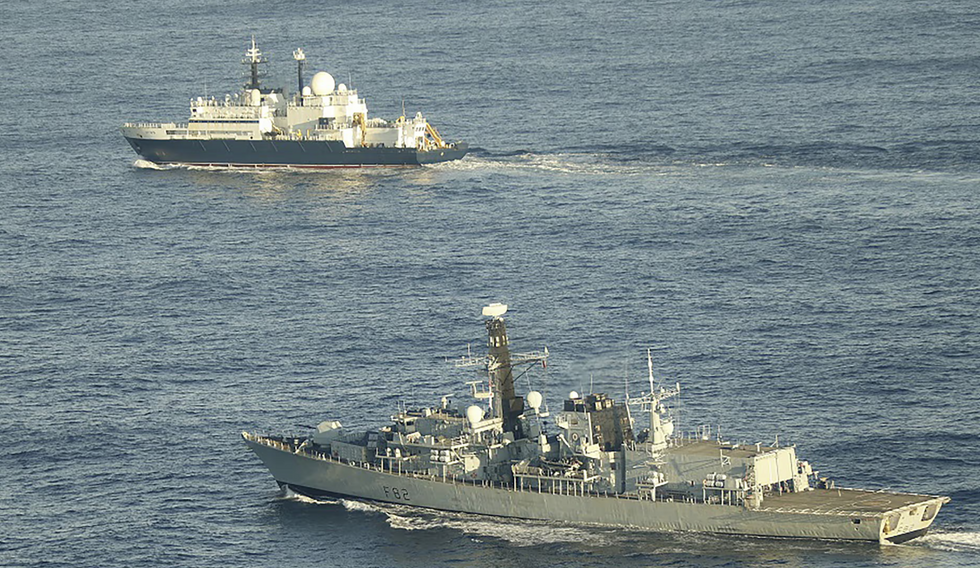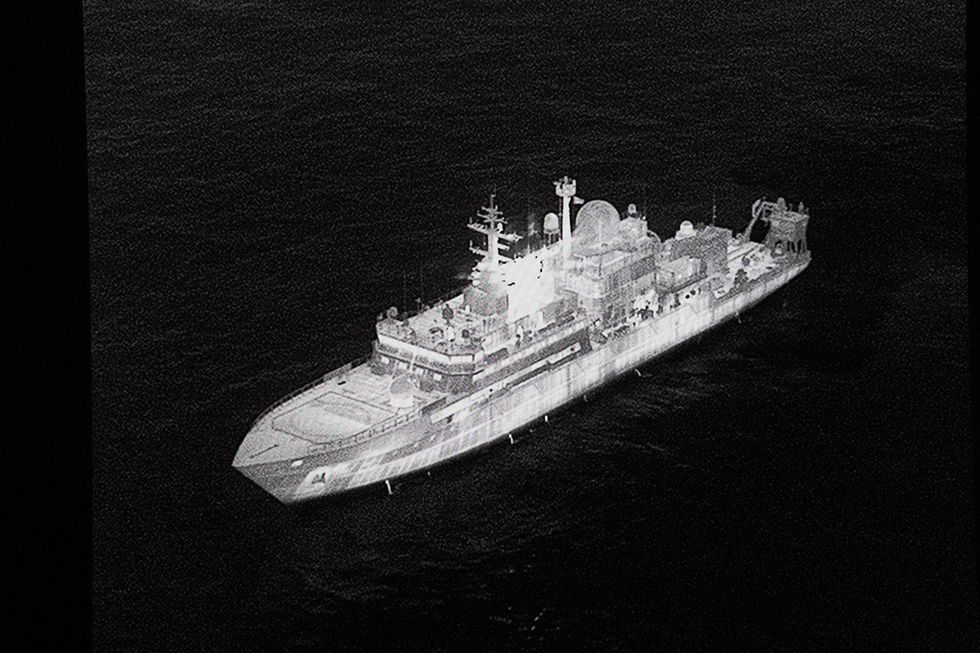A Royal Navy patrol ship has tracked two Russian naval vessels as they transited British waters days after Defence Secretary John Healey issued a warning to Vladimir Putin.
The Ministry of Defence confirmed this afternoon HMS Severn monitored the corvette RFN Stoikiy and the tanker Yelnya as they navigated through the Dover Strait.
The Russian ships continued their journey westward through the English Channel under the watchful eye of the British patrol vessel.
This latest interception forms part of ongoing surveillance operations to monitor foreign military vessels near UK territorial waters.
The incident represents another example of increased Russian naval movements around British coastlines, with both warships and support vessels regularly requiring close observation by Royal Navy assets.
After tracking the vessels through British waters, HMS Severn transferred surveillance responsibilities to an allied Nato vessel near the Brittany coastline.
The British patrol ship maintained its position at a greater distance whilst continuing to monitor the Russian vessels’ movements.
The Ministry of Defence confirmed today HMS Severn stayed prepared to react should any unusual behaviour occur during the transit.

This coordinated approach between British and Nato forces demonstrates the ongoing cooperation in monitoring Russian naval movements through European waters.
The handover of tracking duties reflects standard operating procedures when foreign military vessels transit through international shipping lanes adjacent to multiple allied nations’ territorial boundaries.
The Ministry of Defence has recorded a significant escalation in Russian maritime activity near British territorial boundaries.
Officials report that incidents involving Russian vessels “threatening” UK waters have risen by 30 per cent during the previous 24 months.
LATEST DEVELOPMENTS
- Nathan Gill: Former leader of Reform UK in Wales jailed for taking pro-Russia bribes
- Ukraine drone strike shoots down £11million Russian helicopter ahead of crunch peace meeting
- ‘No gratitude!’ Donald Trump lashes out at Volodymyr Zelensky as European leaders hold crunch Ukraine talks

Meanwhile, there were no injuries sustained by British pilots and no damage to their planes or equipment after a Russian spy ship directed lasers at them, the Government confirmed this week.
The Yantar Russian research vessel is used to gather intelligence and map undersea cables, and it is currently operating on the edge of British waters, monitored by Royal Navy frigate HMS Somerset and RAF P-8s.
Defence Secretary John Healey announced on Wednesday that lasers originating from the Yantar were directed as British personnel operating one of the P-8s in a bid to disrupt the monitoring.
Armed Forces minister Al Carns told MPs on Thursday the pilots were medically assessed after the incident, and there were no injuries.
Defence Secretary John Healey said the UK is exploring military options if the Yantar sails closer to British shores from its current position north of Scotland.
Me Healey told a Downing Street press conference on Wednesday his message to Russian President Vladimir Putin is: “We see you. We know what you’re doing. If the Yantar travels south this week, we are ready.”
The Yantar is one ship in a fleet of Russian vessels that are part of a Russian ministry of defence deep sea research programme known as GUGI (Main Directorate of Deep-Sea Research).
GUGI has both specialist surface vessels and submarines that are used to survey underwater infrastructure, but also has the capability to damage or destroy that infrastructure.

Mr Carns told MPs the vessels are “designed to threaten our critical national underwater infrastructure and pose a threat indeed to our economics and our way of life”, and that “Russia seeks to conduct this type of operation covertly, without being held responsible.”
In January, it emerged the Yantar was caught lurking over undersea cables and was warned off by a Royal Navy nuclear-powered submarine.
Shadow Defence Secretary James Cartlidge branded the actions of the Yantar this week a “serious escalation by Russian forces in close proximity to our homeland.”
He also highlighted a report published by the Defence Select Committee, which he said revealed Labour’s “total lack of progress on boosting our defence readiness”, which it says is happening at “a glacial pace.”
Our Standards:
The GB News Editorial Charter







Follow